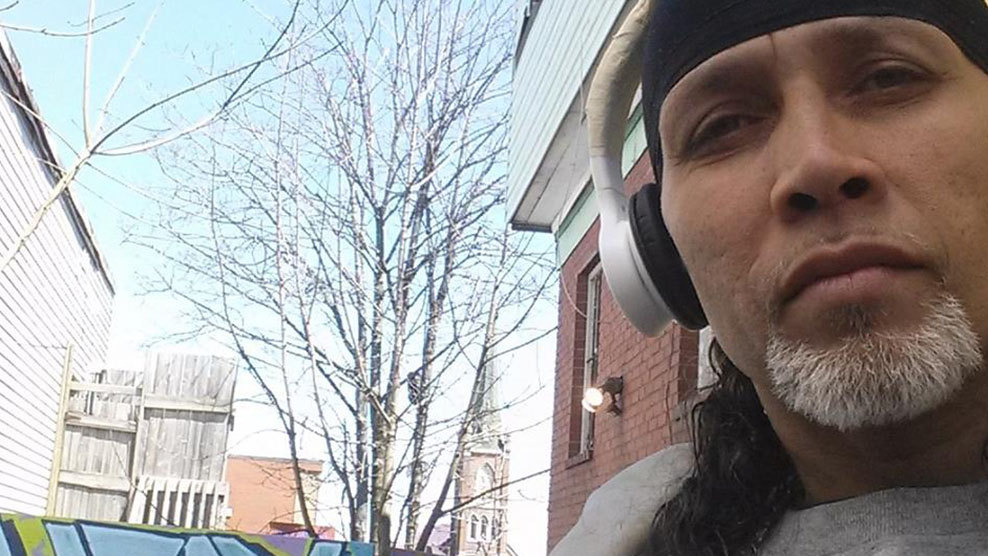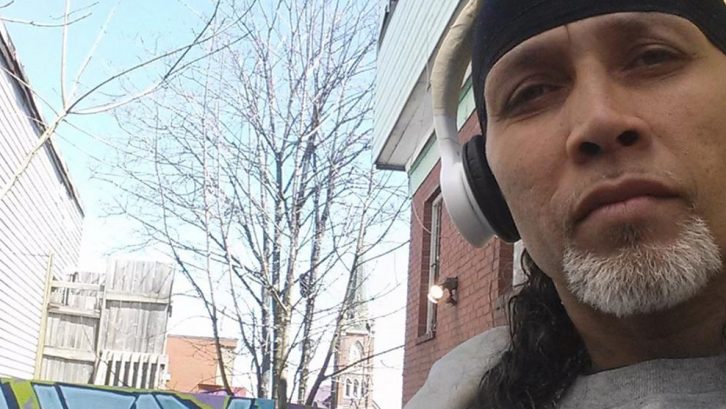Addiction
‘I know them because I am them:’ How Chris Clayton helps addicts
Outreach worker uses his experience to help those suffering with addiction on Halifax streets

caption
Chris Clayton is a peer navigator for Mainline.
caption
Chris Clayton, a peer navigator for Mainline, says he doesn’t judge the people who struggle with drugs.For Chris Clayton, it takes one to know one.
Clayton, 48, is a peer navigator for Mainline, a community drug outreach program that supports users through harm reduction. He’s also a recovering addict himself who has seen changes throughout Halifax’s drug community — especially in the last year.
“People are definitely dying because they are buying drugs from dealers they aren’t familiar with,” said Clayton. “I have seen it many times. People are using shit that is laced and they like the feeling, so they buy more and more and pretty soon, their bodies just can’t handle it.”
According to Nova Scotia’s Opioid Use and Overdose Framework, in 2016 there were 53 acute opioid overdose deaths with only four involving fentanyl. From 2011 to 2015, Nova Scotia averaged 60 overdose deaths per year from opioids alone. Related stories
Clayton has seen some horrifying images in his time as a peer navigator, including fentanyl users found dead sitting on benches outside their homes.
But he is quick to caution that the root of the problem is opioid use. He said if opioid use wasn’t so rampant, fentanyl would be a non-issue.
The challenge to combat addiction drives Clayton forward in his career. He is out in the community five days a week to provide awareness, education, clean gear, emotional support and empowerment. He mostly works during the day, but he’s available anytime, if needed.
“Chris has really become a role model in the community and an ambassador for the program,” said Diane Bailey, director of Mainline. “When I think of Chris, I think of him just stopping and talking to everybody. He shakes everybody’s hand. He has time for everyone regardless of their situation.”
‘Rips your guts right out’
It is his experience with addiction that allows Clayton to relate to his Mainline clients.
He started using hard drugs as a teenager and spent much of his early adulthood high or incarcerated. He became addicted to opioids in 1987 because of chronic migraines, which led him to the hospital where he was given a shot of Demerol.
“I felt shame. I was against it, but I’m doing it. It rips your guts right out. It’s like ‘how did I become this person?'” said Clayton. “It put me out of my suffering. But I ended up getting dope sick on top of having migraines. My legs were jumping, my knees were knocking, my skin was crawling.”
This is why he’s not surprised when he sees people struggling.
He described going into a client’s apartment and seeing every wall smeared with blood. The ceiling had upwards of 300 needles sticking out of it, as these addicts opted to throw needles upwards like darts in order to dispose of them, a practice that is not uncommon.
On another visit a young woman had an abscess that was so infected, it swelled about three inches from the inside of her elbow. He said the yellow and green puss indicated the veins that could take no more prodding.
“It doesn’t phase me and I don’t judge,” said Clayton. “These people are very sick. This is not a choice; nobody would ever choose to live like that.”
Despite his sobriety and career success, Clayton hasn’t forgotten where he is from.
“People can identify with the simple fact that if you want to talk to me. I’ll talk to you. I know them because I am them,” said Clayton. “When I talk to one of my clients, it’s like speaking with a friend. It doesn’t matter if you know them or not. It’s like a family member that you never met.”

G
Giulia Di Giorgio
L
Lothian Taylor
D
Debbie
L
Lothian Taylor
T
Tacoma
G
Gail Gaudet (johnson)
T
Tonya